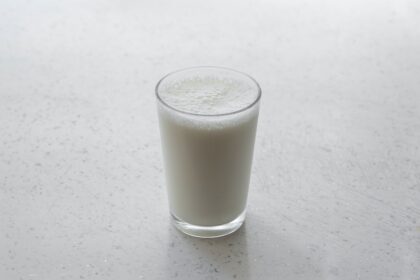Everything you need to know about symptoms of the perimenopause
Are you noticing strange new physical symptoms? Suspect you may be approaching the menopause? Read on for everything you need to know about symptoms of the perimenopause.
Menopause generally occurs between the ages of 45 and 55, but in some women it can begin much earlier, and in others as late as 65.
For most women there are three phases of the menopause:
- Perimenopause, where you still have periods but they may be heavier or lighter than usual and you may start to experience some menopausal symptoms
- Menopause, when ovarian function declines, oestrogen levels drop off and periods stop
- Post-menopause, which officially begins 12 months after your last period – but it’s safer to wait two years before assuming it’s all finished, as many women have another bleed or two after 18 months
Throughout all three phases hormonal fluctuations tend to run amok – in fact, only 12% of women just wake up one day and never have another period. The other 88% notice fluctuations in their cycle as their ovaries lose steam: their cycles are longer or shorter than usual, heavier or lighter, or characterised by intermittent spotting.
If you had to pick just one symptom that was synonymous with menopause, it would undoubtedly be the well-documented hot flush (and associated night sweats).
However, right from the perimenopausal get-go, even this preliminary stage of menopause is, for many women, a time of considerable change and emotional upheaval – and incredibly, there’s a whole myriad of symptoms that aren’t talked about nearly enough.
For example, up to 40% of women will experience hair loss; depression is estimated to affect upwards of 70% of women; anxiety and paranoia creep up on you when you least expect it, and suddenly it becomes nigh on impossible to maintain a healthy weight. Other women many notice changes to their hearing during menopause.
Sound familiar? Of course perimenopause and the transition into menopause is different for every woman, but a few more frequently encountered symptoms include:
- Irregular, painful periods or periods that are heavier than usual
- Breast pain
- Hair loss
- Seemingly groundless anxiety and irritability
- Dryness of various tissues (skin, eyes, vaginal)
- Temperature irregularity
- Trouble sleeping and insomnia (and consequently tiredness)
- Low mood and libido,
- Muscle and joint aches and pains
Nine common (but lesser known) symptoms of perimenopause
Let’s look at nine of the lesser-known, yet surprisingly common symptoms of perimenopause and menopause, and what we can do to help mitigate these symptoms.
1) Hair loss
Experiencing hair loss at any age or life stage can be incredibly upsetting. It often occurs during menopause as a result of plummeting oestrogen levels and an increase in testosterone. Both hormones have an important influence on hair growth.
Oestrogen is important for promoting hair growth, and while oestrogen levels drop through perimenopause, testosterone levels can increase disproportionately. This combination causes hair on the scalp to be thinner than before, often with a frustrating increase in facial hair!
2) Low mood and depression
The hormones oestrogen and progesterone work together to regulate mood. Declining levels of these hormones during perimenopause make you more susceptible to low mood and depression, whilst also experiencing more anxiety and finding it harder to relax.
Hormonal fluctuations, very much a feature of perimenopause, are unconducive to emotional stability. Experiencing unaccountable emotional sensitivity can be extremely disconcerting, and add to the feeling that you are ‘not yourself,’ and have lost control of your life.
3) Anxiety and paranoia
Anxiety and low mood often go hand in hand, and, if left untreated or if anxiety is severe, panic attacks can ensue. Added to that, hot flushes and sweats can be socially embarrassing and may contribute to increased social anxiety in some women.
Feeling less competent due to sleep deprivation and brain fog can add to anxiety and undermine day-to-day confidence in areas that would previously have been a breeze.
4) Weight gain
Weight gain can be caused by a variety of factors such as being less active, a loss of digestive stimulus with lower oestrogen levels, stress causing poor food choices, and an increase in cortisol levels due to ongoing stress.
This latter factor contributes to fat deposited around the middle. According to Cormendi Health, the hormonal havoc being wreaked during perimenopause can affect thyroid hormones too, which may contribute to slower metabolism and therefore more difficulty maintaining a healthy weight.
5) Lower bone density and osteoporosis
Falling oestrogen levels can affect the production of bone-building osteoblasts, leading to less bone mass, brittle and thinner bones. Insufficient protein in the diet can contribute to the creation of fewer osteoblasts too.
Poor stomach function and lower levels of stomach acid can affect the absorption of calcium and magnesium, both vital for bone health. This can be worse in the presence of antacid medication or PPIs.
Lack of magnesium in the diet is particularly damaging, as magnesium is needed to help calcium get to the bones. As it is also used up counting stress responses, stress and poor diet can deplete magnesium quite dramatically.
6) PMS
PMS symptoms can appear for the first time or the usual ones can be exacerbated, making symptoms worse and often prolonging the amount of time they last.
7) Crashing fatigue
All the hormonal and physical changes going on can really deplete you of energy. If you have a busy lifestyle, as is the case for most midlife women, and the quality of your nutritional choices starts to decline, the body may increasingly run out of steam.
Unfortunately, today, many women try to push through this fatigue, making it worse. Fatigue can also be caused or exacerbated by other health issues that appear at this time, such as anaemia (from heavy or prolonged periods), vitamin D or B12 deficiency, or underactive thyroid function. It is always sensible to check these latter factors with a doctor, as they can be rectified fairly simply.
8) Trouble sleeping
Falling oestrogen levels can affect sleep in many ways, such as making it more difficult to fall asleep, stay asleep, and get a deep sleep to aid proper recovery from the day. Waking up really early and not being able to fall back to sleep is also more likely at this time. Night sweats can often interrupt sleep several times a night, adding to physical exhaustion and mental fatigue.
9) Body aches and pains
Falling oestrogen levels can affect the elasticity of ligaments and tendons, decreasing joint range and promoting in pain and stiffness. Cartilage can be affected by general dehydration, as well as age-related wear and tear, which collectively cause joints to rub together, which can lead to arthritic processes and degeneration.
Help with perimenopause and menopause
A key point to appreciate is that your adrenal glands (which produce adrenalin when you are stressed) are able to make ‘back-up’ hormones to buffer the fall of oestrogen and progesterone during menopause. But they are less able to do this if you are highly stressed and therefore demanding regular adrenalin production.
Rest and relaxation are some of the most important ‘treatments’ for keeping the transition from perimenopause to menopause a happy time. No matter how hard-pushed for time you are, factor in some R&R as a matter of priority.
A big factor here is the disinclination many women feel to put their needs ahead of those of others – family, friends, work colleagues… It’s crucial to know that R&R is not an optional extra at this time, but actually a vital part of your menopausal wellness strategy, which will benefit those around you as well as you yourself.
Marvellous magnesium
The adrenal glands need plenty of magnesium and vitamins B and C. Magnesium is needed for digestion, muscle relaxation, resilience in the face of stress, bone health, energy, thyroid balance, and bone, nail and skin health – there’s nothing much it doesn’t help with!
Magnesium levels drop in the week before your period, so if you’re deficient it tends to show up markedly during that week, contributing to anxiety, muscle tension, cramping, and bloating. Monitoring how you feel during that time will therefore give a good clue as to how robust your magnesium levels are.
Some wonderfully rich sources of magnesium include: dark green vegetables such as spinach and chard, apples, artichokes, avocados, bananas, black beans, nuts (almonds, Brazil nuts, cashews and hazels), brown rice, dates, figs, dried apricots. The delicious list goes on!
Mood-friendly foods
Eat to support mind and mood. Mood-friendly foods include fish, turkey, chicken, beans, avocados, bananas, and fermented foods such as sauerkraut and kimchi, as they help the body to produce more serotonin.
Wholegrains, seasonal vegetables and fresh fruit boost energy, and foods rich in omega 3 essential fatty acids (EFAs), such as oily fish and seeds, can help to support general brain health. EFAs, and EPA (eicosapentaenoic acid) especially, have also been linked to improvements in mood.
B vitamins are likewise important for brain health, helping to convert food into energy and support the adrenal glands during times of stress.
If irritability is a problem, try vitamin B12, available naturally in oily fish, eggs and meat or as part of a B-complex supplement.
PMS during perimenopause
For the classic symptoms of PMS during perimenopause (irritability, mood swings, breast tenderness, bloating and cramps), the herb of choice has to be Agnus castus. These symptoms are usually associated with a regular, fairly heavy cycle, or a short cycle.
An initial sign of perimenopause can often be periods starting to come more frequently and/or be heavier; they may also last longer than previously. Agnus castus is appropriate for this type of cycle rather than a long or light cycle. It’s not suitable for those using hormonal contraceptives or on any other form of hormonal medication.
Steer clear of stimulants
If you’re prone to anxiety, there’s plenty you can do to help lessen your symptoms. Keeping caffeine and alcohol to a minimum is a good place to start. Both are likely to trigger panic attacks because they stimulate activity in the brain. B
eing able to slow and control your breathing with activities such as yoga and meditation, can help to quieten a busy mind. Learning a simple breathing technique such as square breathing can be hugely beneficial, as this can be done anywhere, at any time, without anyone being aware you are doing it.
As far as herbal remedies are concerned, Passiflora is a lovely herb to try for mild anxiety. It helps to activate the parasympathetic response, in a similar way to a calming yoga class. Passiflora is available from A.Vogel as drops or in tablet form. There is also a handy spray bottle for on the go use.
Natural support and other herbal helpers
Sage, one of our oldest medicinal plants, can be especially helpful for hot flushes and night sweats. It helps to correct sweat regulation and diminish hot flushes. Fresh sage drops diluted in a little water and taken three times daily can really help. Try Menosan Sage Drops or for extra oomph, Menoforce Sage Tablets.
Alternatively, A.Vogel’s Menopause Support tackles all stages of menopause, and contains soy isoflavones, a source of gentle phytoestrogens for your body. These can be helpful when symptoms of low oestrogen are rife, but not when periods are coming thick and fast. They are not suitable for those using hormonal contraceptives or taking other hormonal medication.
Bone support
Vitamins C and K are crucial for healthy bones, as are calcium and magnesium. Most of us know that dairy products such as yoghurt, skimmed milk and cheese are good sources of calcium, but they don’t provide much magnesium and some people have difficulties digesting them.
Spinach, broccoli, beans, peas, sardines and pilchards are also excellent calcium providers, with better magnesium profiles. In addition to four servings of calcium-rich foods a day, increase your intake of vitamin D (found in oily fish, liver and eggs), which is essential for the absorption of dietary calcium.
Get and stay active
For emotional support during any time of challenge, nothing beats exercise. It’s a great way of producing happy chemicals (endorphins), metabolising carbs, toning muscle (which then burns more calories), and working off unhelpful or aggressive feelings.
Exercising outdoors is ideal, because green space exposure is thought to be especially beneficial. Greenery activates a primitive part of the brain involved with stress regulatory responses, and most people can relate to the feeling of calm that can be experienced when surrounded by gorgeous greenery. There is a great deal of research behind the idea of forest bathing, but even if you can’t get to a forest, a park or anywhere in nature does the trick.
Then again, any type of exercise that takes your fancy is fine, so long as it gets you moving or toning.
Trouble sleeping?
Finally, if flushes and night sweats are starting to affect your sleep, Valerian taken half an hour before bedtime should help you to drift off. Non-addictive, and not associated with withdrawal effects, it doesn’t lose its efficacy if you continue to need it longer-term.
Read more about perimenopause
You can find more advice on perimenopause and the menopause in these articles:
- The four stages of menopause and your treatment options
- What to eat to reduce your menopause symptoms
- Eight ways you can make the most of the menopause
- Work and the menopause – what women need to know
Article written by Eilen Durward, Certified Menopause Coach, and Alison Cullen, Nutritional Practitioner from avogel.co.uk.










